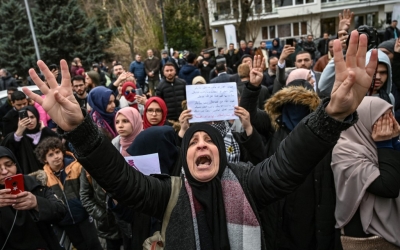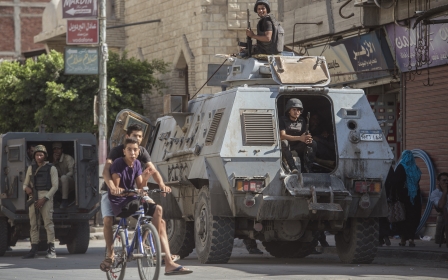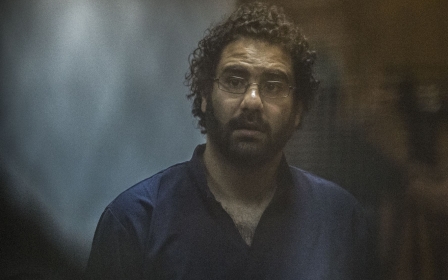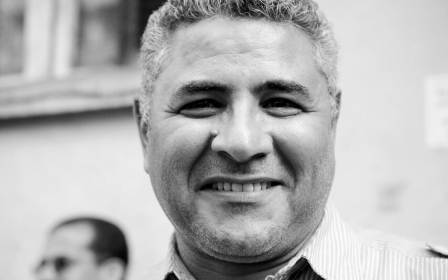Egypt 'prosecuted more than 16,000 people' for political reasons in 2020 and 2021
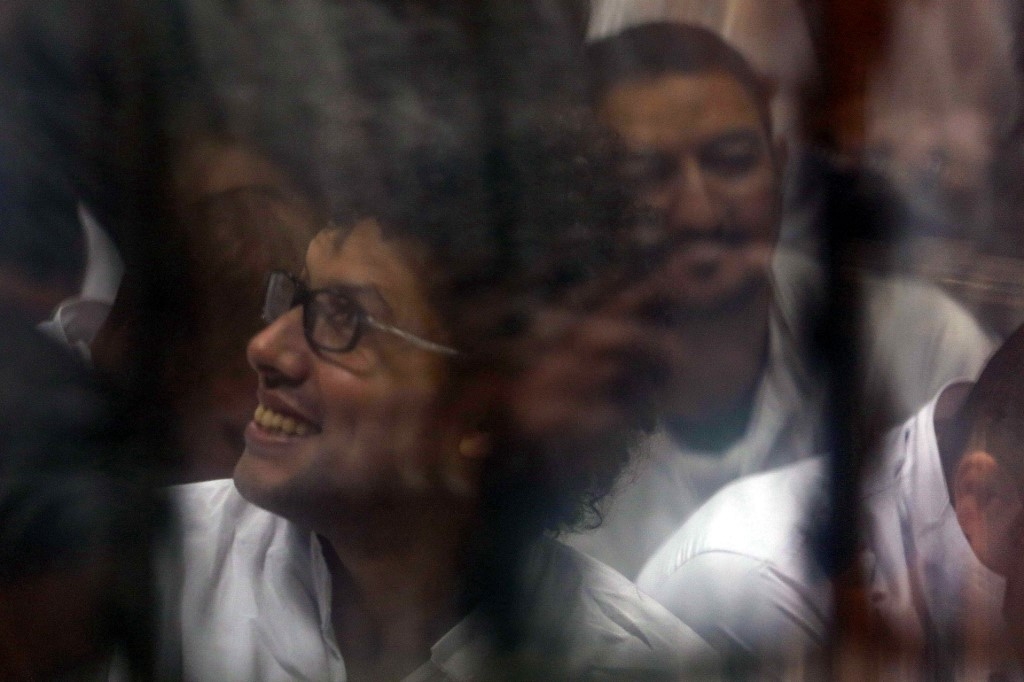
At least 16,064 people have been victims of politically motivated prosecutions in Egypt in 2020 and 2021, according to a new report.
A database collected by the Cairo-based think tank Shafafiya (Transparency Centre) documented the crackdown on 10,291 people subjected to detention or prosecution during 2020, and 5,773 people in 2021.
New MEE newsletter: Jerusalem Dispatch
Sign up to get the latest insights and analysis on Israel-Palestine, alongside Turkey Unpacked and other MEE newsletters
Among the accusations brought against the defendants are “joining a terrorist group” and “attempting to overthrow the regime”.
The report, published on Monday, highlighted the cases of those targeted due to their involvement in the public sphere, including protests as well as sports events.
President Abdel Fattah el-Sisi has repeatedly denied that his country holds any political prisoners, but his administration has recently launched an initiative to pardon prisoners detained in connection with political cases.
More than half of all prisoners in Egypt are political, according to the Arabic Network for Human Rights Information.
The number of prisoners in the country totalled 120,000 in March 2021, at least 26,000 of whom were held in pre-trial detention.
The Presidential Pardon Committee, tasked with facilitating prisoners’ release, was launched on 26 April during Ramadan, the month when presidential pardons have traditionally been handed out.
Following the move, more than 3,000 prisoners were reportedly released, as well as a number of high-profile political prisoners, including Hossam Moniss, a prominent leftist organiser and journalist. Most of those released were not political prisoners, however.
Sisi rose to power after ousting Egypt's first democratically elected president, Mohamed Morsi, a leading figure in the Muslim Brotherhood, in a 2013 military coup.
Since then, his government has targeted members and supporters of Morsi's administration in a widespread crackdown. More recently he has also targeted the secular opposition.
Middle East Eye delivers independent and unrivalled coverage and analysis of the Middle East, North Africa and beyond. To learn more about republishing this content and the associated fees, please fill out this form. More about MEE can be found here.


